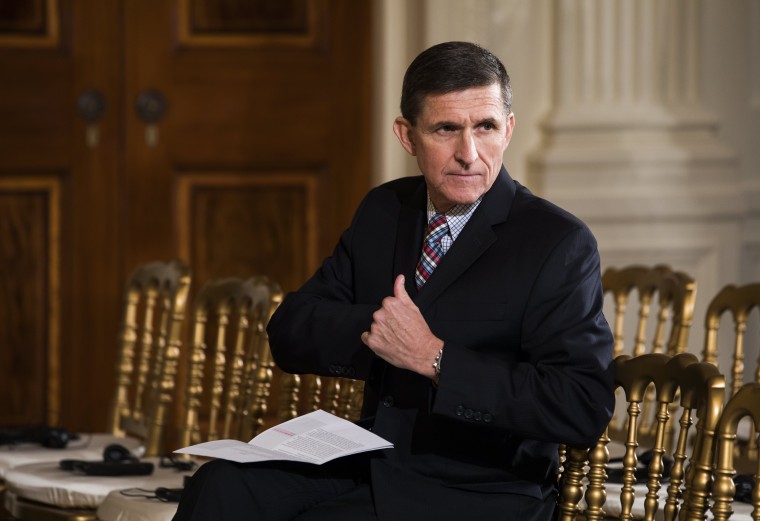Michael Flynn abruptly quit as President Donald Trump's national security adviser Monday night, hours after it emerged that the Justice Department informed the White House that it believed he could be subject to blackmail.The resignation also came after previous disclosures that Flynn had misled Vice President Mike Pence and other senior officials about his communications with Sergey Kislyak, Russia's ambassador to the United States. Pence repeated the misinformation in television appearances.
In terms of the nation's interests, Flynn's departure, after just three weeks on the job, is an encouraging development. He was, by almost any measure, a ridiculous choice for National Security Advisor, not only because of his controversial connections to foreign governments, but also because Flynn has been a bombastic, right-wing conspiracy theorist in recent years. The NSA has to deal with the most sensitive information available, and the idea that Flynn was chiefly responsible for guiding the president's thinking on security matters was, to put it mildly, unsettling.But the key area of interest right now is the increasingly dramatic scandal surrounding the White House. It's likely that Republican partisans and Trump's allies will argue that Flynn's resignation effectively brings the matter to an end.That's backwards. Flynn's resignation doesn't resolve the underlying scandal; it takes the controversy to the next level.The questions in need of answers are starting to pile up in a hurry. We don't know, for example, whether these dramatic events will lead to criminal charges against Flynn or anyone else in the Trump administration.We don't know what happened in the West Wing last month, if anything, after the Justice Department advised the White House directly that Flynn had lied about his communications with a Russian official. Was Team Trump prepared to let all of this slide until the facts started coming out in the media?We don't know if anyone encouraged Flynn to lie or offered to help him cover up his alleged misconduct.We don't know who at the White House knew about Flynn's potentially illegal contacts with a foreign government, and what they did after finding out.We don't know the extent of Flynn's pre-election communications with Russia. Did Trump and his aides know they weren't telling the truth when they said the communications never occurred?We don't know what the president knew and when he knew it.Postscript: White House Press Secretary Sean Spicer was asked late yesterday whether Trump knew of Flynn's conversation with Russian Ambassador Sergey Kislyak. "There is no way," Spicer said. "Absolutely not."The trouble, of course, is that Spicer's credibility is already in tatters -- his previous claims about Flynn's talks with Russia have already been discredited -- making it very difficult to believe the press secretary's latest denials.
